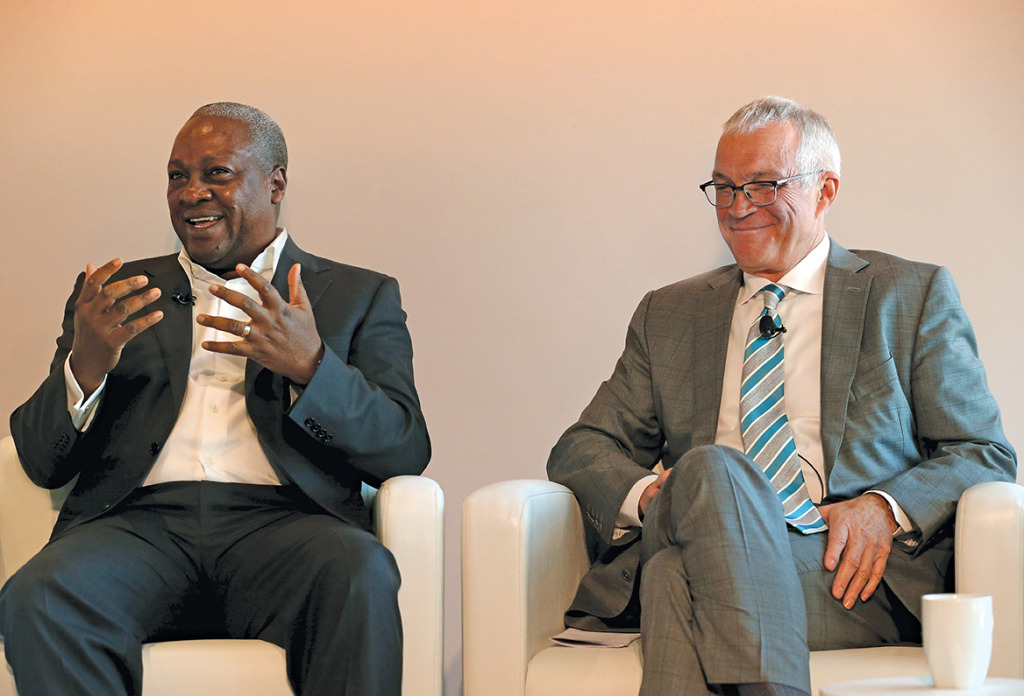Ghanaian President John Dramani Mahama, left, and Jay Ireland, president and CEO of GE Africa, discuss expanding access to power sources across Africa. [GETTY IMAGES]
REUTERS
U.S. and African companies and the World Bank on August 5, 2014, pledged more than $17 billion in investments in construction, energy and information technology projects in Africa.
The previous day, General Electric announced $2 billion in new investments in Africa through 2018 as Washington kicked off the U.S.-Africa Summit, aimed at boosting commercial relations.
GE told Agence France-Presse the new investments will include health training programs in several countries, including Ghana, Kenya and Nigeria; a new facility in Nigeria for manufacturing and assembling machinery, mainly for the oil sector; customer support systems in South Africa; and other operations.
The U.S.-Africa Business Forum, part of the three-day summit in Washington, has allowed dozens of African heads of state to meet with U.S. and African executives and has spotlighted projects to improve infrastructure, finance, supply chains and energy security. U.S. President Barack Obama met with corporate chief executives and government leaders at the event.
Dangote Group President Aliko Dangote signed an agreement to jointly invest $5 billion in energy projects in Sub-Saharan Africa with Blackstone Group funds, saying nothing works if there is no power.
The Nigerian company makes cement, mills flour and refines sugar, among other things. Dangote also called for the U.S. Export-Import Bank to remain open, praising its support for African companies buying U.S. goods.
The World Bank, which committed $5 billion to support electricity generation, estimates one in three Africans, or 600 million people, lack access to electricity, despite rapid economic growth expected to top 5 percent in 2015 and 2016.
Africa is expected to have a larger workforce than China or India by 2040 and boasts the world’s fastest-growing middle class, supporting demand for consumable goods.
The Coca-Cola Co. said it would invest $5 billion with African bottling partners in new manufacturing lines over six years, and IBM CEO Ginni Rometty said the IT giant would plow more than $2 billion into the region over seven years.
Wal-Mart Stores Inc. CEO Doug McMillon said the retailer had faith that regional governments would work to ensure a secure business environment and the rule of law.
The company’s $2.6 billion investment in the region in 2011, when it bought a majority stake in local Massmart Holdings Ltd., was “just the beginning,” he said.

